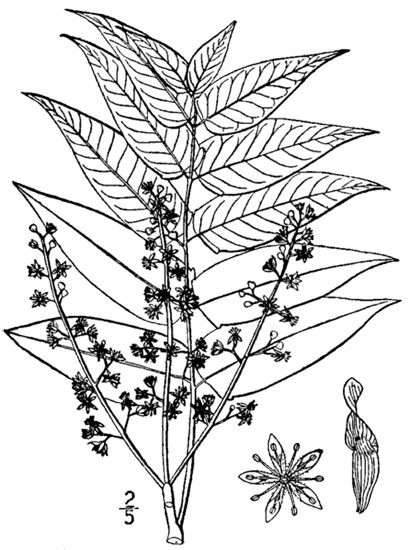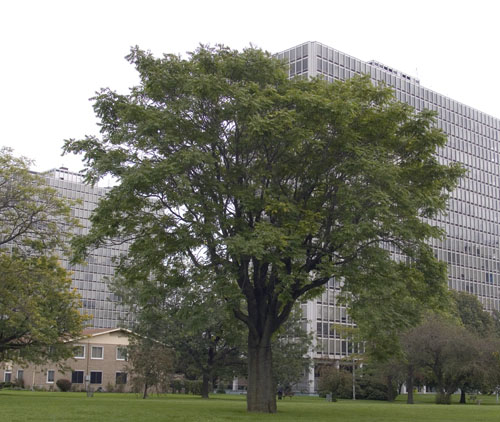History
The Detroit Tree of Heaven Woodshop was founded in 2005 by Mitchell Cope, Ingo Vetter and Annette Weisser as a Detroit-based network of artists and non-artists. The Woodshop works exclusively with wood processed from the Tree of Heaven, a resource unfailing in Detroit. Also known as “ghetto palm”, this plant (lat. Ailanthus altissima) populates abandoned lots and deserted factory sites all over Detroit. Originating in China, the first specimen were brought to the U.S. by an amateur botanist from England in 1784. It soon escaped the arboretum in order to conquer the New World, along with innumerable specimen imported by Chinese immigrants during the California Gold Rush. Besides its popularity as an exotic addition to parks and gardens, it is highly appreciated in traditional Chinese medicine to cure a wide range of ailments from digestion problems, mental conditions, balding, to asthma and even cancer. But its true qualities show when left unattended: The anarchic invasiveness (that leaves little room for other species to grow in its vicinity) and the ability to thrive on even heavily polluted or dry soils makes the Tree of Heaven a significant plant of post-industrial landscapes.
As artists, we are interested in the ongoing effects of de-industrialisation on communities and environments. This shared interest brought us together in the City of Detroit, as place that like no other became synonymous with post-industrial decay and destruction. Roaming through the deserted inner city areas, the quantity and height of Tree of Heaven specimen functions as a signifier for how long a place might have been abandoned. Commonly disregarded as a weed better to be extinguished, we look at it as a post-industrial resource, and take advantage of its ubiquity. Since the tree is growing very fast, the wood is of poor quality by conventional standards but processable if correctly cured. We actually like the unpredictability of the material and work with it instead against it.
The Woodshop is set up as a loosely organized network of specialists, craftspeople, researchers, artists and enthusiasts. On invitation, we prefer to create new products for a specific context. Usually, production takes place in Detroit. We use existing infrastructure and support small local businesses, thus the tree becomes an agent of communication. Processing trees into raw material for sculptures or furniture might not be regarded as a very sophisticated concept. But in the light of this specific city and the qualities of this specific tree it becomes a demonstration of the possibilities of this place in time.

